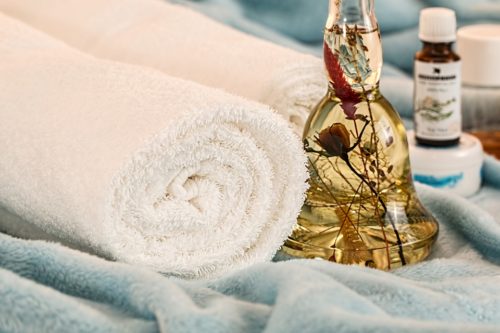This spring I announced my candidacy for the open seat on the Coralville City Council. Although I had considered running for a very long time, the decision was not an easy one. I’ve worked on numerous local campaigns and know firsthand how stressful running for office is. I’ve experienced the emotional and physical toll of working as a campaign manager, and that stress is multiplied tenfold when you’re the person out front.
As an introvert with high-functioning anxiety, I knew that running for office would be one of the most difficult things I’ve done. As such, I knew I would need to be radical in my self-care practices. Since the campaign season has started unusually early, I needed to find cost-effective strategies that I could utilize on a long-term basis.

Spa days, manicures, and day trips are wonderful but far too expensive to do weekly. In addition, the relaxation benefits of these types of activities are usually shorter in duration. Since I knew that running for office is an emotional and physical marathon, I needed to find solutions that were inexpensive and have long-term benefits.
Here are a few of my favorite low cost or no cost self-care strategies.
5 Low Cost (but Effective!) Self Care Strategies
Guided Meditations
I’ve been utilizing guided meditations on a regular basis, and it has helped immensely. Since it can be hard to find extra time during the week, I typically add this into my workouts (usually after a short yoga practice.) The programs I listen to are available on Amazon, and most are free if you have a Prime account. Do Yoga With Me also has some free programs.
“Forest Bathing”
Forest bathing is a practice that originated in Japan. It’s defined by mindfully taking in the atmosphere of the outdoors, usually in a forest or heavily wooded setting. While being outside is certainly therapeutic, forest bathing emphasizes consciously absorbing the sights, sounds, smells, and the whole experience of being out in nature.
Studies of the practice are promising; several have found that spending time in natural environments has been linked to lower stress levels, improved working memory and increased feelings of well-being. This is another practice I’ve woven into my daily workouts. Since we live near several wooded trails, I’ve been running and walking outside instead of hitting the gym. I take extra time during my cool-downs to sit and absorb the sights and sounds of being outdoors.
Home Spa
While I’ve treated myself to the occasional facial or manicure, it’s not within our budget to do so very often. However, I’ve still been able to practice similar self-care practices at home. I’ve been treating myself to long soaks in the tub with special bath products. (Some of my favorites include Da Bomb products at Hy Vee, Lush Cosmetics and even good old Mr. Bubble.) I’ve also been taking time to do my nails. (I’m a big fan of the Jamberry lacquer since it’s long-lasting and has low odor.) While I’m not very good at painting my nails, I’ve found that just allowing myself the time to do them is a great self-care practice. I’ve also been gradually replacing my makeup (I’ve recently discovered Younique and Kat Von D products.)
It’s not my skill level that matters. The act of taking the time to invest in myself is restorative.
Hygge
Last winter I wrote about how the practice of hygge helps me cope during the long, cold months of the year. Even though Hygge is often associated with winter, the principles of gratitude, simple indulgences, and drawing loved ones near can be practiced year-round. Some of my favorite warm-weather hygge activities include taking walks with our whole family, playing outdoor games with my kids, reading on our screened-in porch, and Netflix-bingeing inside when it’s too hot to be outside.
Radical identification of my feelings and needs
This may sound overly simple, but articulating my feelings and needs in a radically honest way has been crucial. I’ve been much more vigilant about checking in with myself, performing emotional “self-scans,” and articulating what I need with complete clarity. For example, since I’m an introvert, meeting a lot of people can be hard on me. After a big campaign event I might tell my husband, “I need to be alone for an hour. You need to watch the kids so I can have space.” Or, “I’m feeling very stressed right now and I need you to comfort me.” (And of course I’m very lucky to have an amazing, supportive husband at my side that understands!)
The good news is that the strategies I’ve employed have been useful so far, and have helped lessen the stress on my family and me. And although the campaign hasn’t kicked into it’s highest and most difficult gear, I’m hopeful that these practices will help sustain me when the going gets really tough. In addition, making these practices a habit will help me be a more mindful and present parent in the long run.
What do you do to de-stress at home?
SaveSave











My most important self-care, I have found, is finding time to be creative. I am an artist at heart, but with a non-art focused career. So nurturing that part of me is vital!